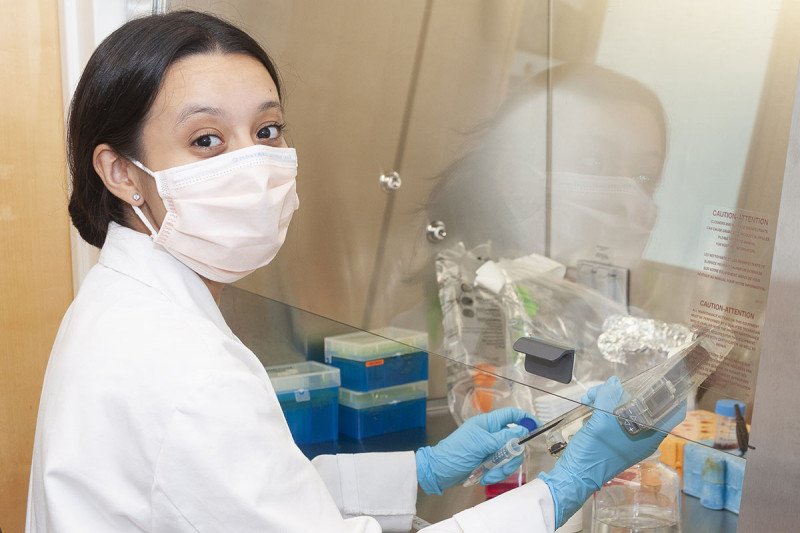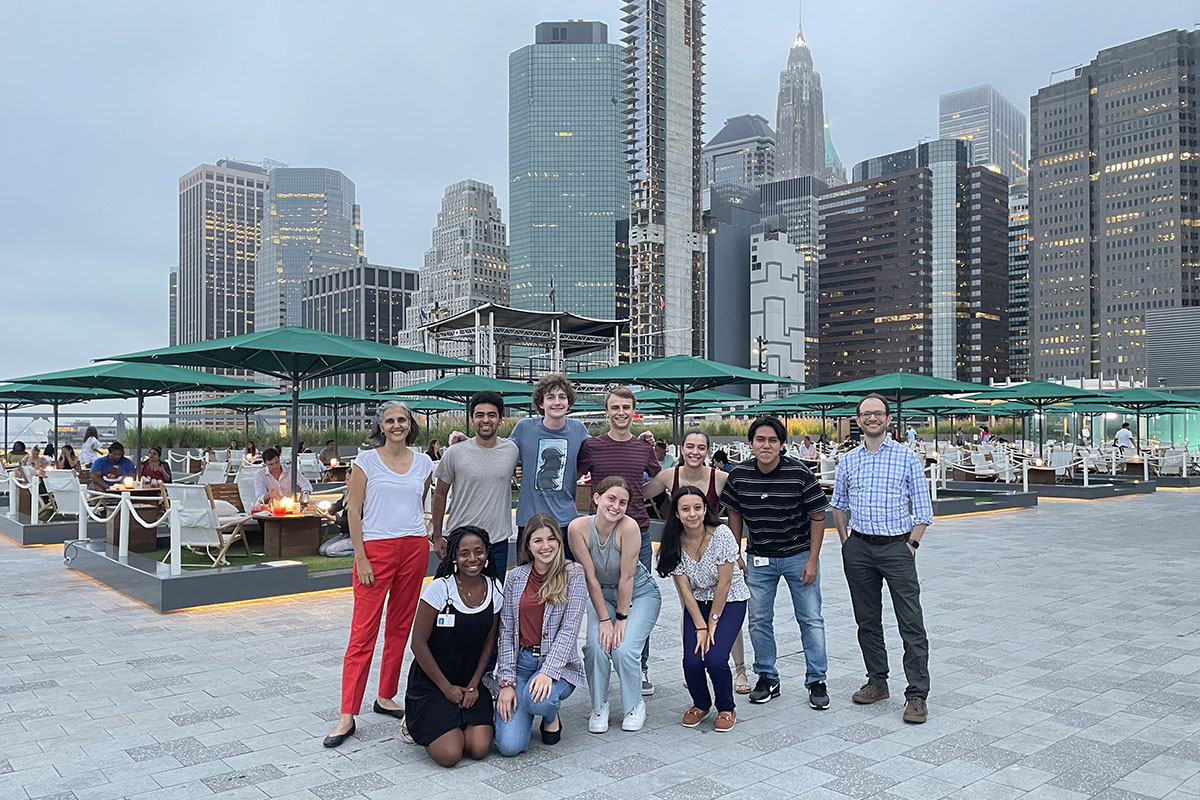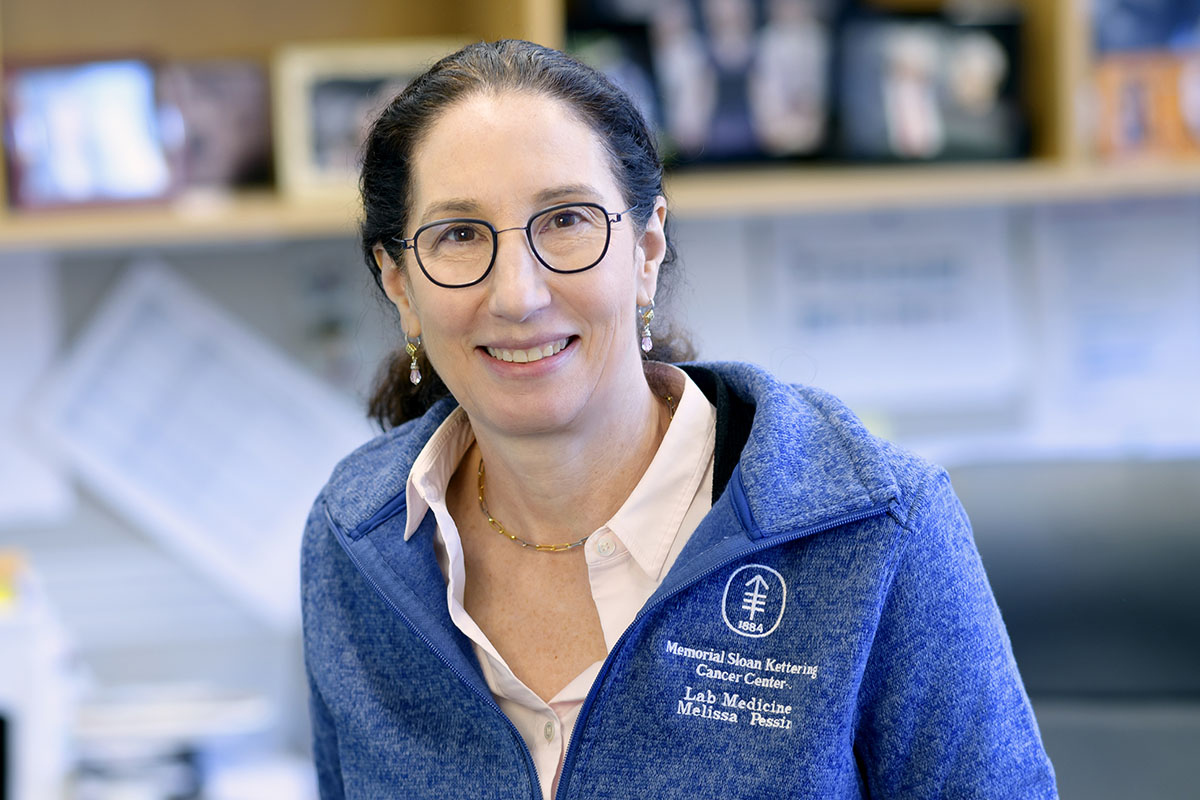
For some students, summer means fun in the sand, surf, and sun. But the high school and college students accepted into one of Memorial Sloan Kettering Cancer Center’s summer internship programs have a far more meaningful answer to the perennial question, “What did you do this summer?”
“It’s my favorite time of the year!” says Ushma Neill, Vice President, Scientific Education and Training, who oversees four of the programs that run between June and August. “The interns bring fresh ideas, are excited about research, and easily integrate into our scientific community.”
The highly competitive internships are part of MSK’s unwavering commitment to train the next generation of scientists across a spectrum of disciplines — from chemistry and computer science to engineering and molecular imaging — as they relate to cancer and the biology of the disease.
Attracting the Brightest Students to MSK
Daniella Jimenez, a rising senior and biochemistry major at the City University of New York, took part in the 2021 Engineering Summer Program (ESP). The internship provided her with the unique opportunity to do hands-on research in the Sloan Kettering Institute laboratory of radiologist and nuclear imaging specialist Jan Grimm.
“It was one of the few in-person programs that were taking place this summer because of the pandemic, so I’m lucky to be one of the few who made it through,” says Ms. Jimenez, who was one of only 37 interns selected from 1,957 applicants to participate in one of the four programs that Dr. Neill oversees.
With guidance from her mentor in the Grimm Lab, PhD student Elizabeth Isaac, Ms. Jimenez was able to build on her lab skills, from using a pipettor and a confocal microscope to analyzing PET/CT scans. “I most enjoyed being able to optimize our experiments because we analyzed everything together and asked questions like, ‘How can we make this better?’ and ‘Why are we seeing results that were not expected?’ We learned as we went, and I feel privileged to have been part of that process.”
The internships are designed for students who already have a certain amount of research experience under their belts, like Ms. Jimenez, who got her first glimpse into biomedical engineering during a previous internship at Columbia University’s Ultrasound Elasticity Imaging Laboratory.
“We’re bringing some truly elite students to MSK from some of the best schools in the country, oftentimes with skill sets that we lack,” says Dr. Neill. “For example, we don’t have an engineering school, but Daniella brings an innovation mindset to answering research problems. I anticipate that interns like her are truly going to move the needle in the lab while also being exposed to the most relevant research in cancer biology.”

Inspired by the World’s Leading Cancer Scientists
A summer internship at MSK can have a significant impact on the budding career of a young scientist. MSK offers a variety of programs:
- High school students interested in biomedical research can apply for an eight-week summer internship program set in one of the busy laboratories of MSK’s Human Oncology and Pathogenesis Program.
-
College students may choose among six 10-week programs, including:
- the Summer Undergraduate Research Program at the Gerstner Sloan Kettering Graduate School of Biomedical Sciences
- the Quantitative Sciences Summer Undergraduate Research Experience
- the Chemical Biology Summer Program
- the Computational Biology Summer Program
- the Molecular Imaging Summer Program
- the Engineering Summer Program
Accepted college students are partnered with MSK faculty in cutting-edge laboratories to conduct innovative biomedical investigation. The interns shadow and work with MSK’s faculty as well as graduate students and postdocs, giving them the chance to dive deeply into the scientific question they’ve decided to ask and be fully surrounded by the dynamic research that takes place in their assigned labs.

They also get exposure to other laboratories and research. The nine engineering interns in the ESP recently spent time with Melissa Pessin, Chair of the Department of Laboratory Medicine, who led them on a tour of the Lab Medicine building and explained how technology helps her team ensure the accuracy of their information.
“We get about 5,000 blood samples and provide about 20,000 results a day and they all have to be right,” says Dr. Pessin. “It was great fun to offer engineering students a whole new view of the diverse opportunities that are available in the field of Lab Medicine, which many people don’t even know exists.”
Ms. Jimenez was among the students who toured the building. “I was amazed. Walking in there was like something out of a science fiction movie,” she recalls, still astounded by the sophisticated equipment designed to accurately process such a magnitude of blood samples every day.
Supporting Student Internships
It costs money for MSK to provide a transformative internship experience. Students receive a stipend and are provided with on-campus housing for the duration of their internship.
Organizations like the National Cancer Institute and the Tri-Institutional Therapeutics Discovery Institute (Tri-I TDI) have generously supported MSK’s summer programs. However, additional funds need to be raised every year to cover student stipends, housing, administration, and other costs.
Fortunately, that funding gap has been closed thanks to the generosity of MSK’s Board members, such as Marie-Josée Kravis, MSK Board Vice Chair and SKI Board Chair, and Virginia Rometty. Their donations have specifically benefited female scientists this summer, who are increasingly vying to participate in these special opportunities.
Since 2018, women have represented well over half of the interns participating in MSK’s chemical biology, computational biology, molecular imaging, and engineering summer programs, according to Dr. Neill.
“These programs don’t run without philanthropy, and we are absolutely thrilled that we’ve been able to rely on board members like Ginni Rometty and Marie-Josée Kravis, who see the value of these educational experiences,” says Dr. Neill. “Their support has been unbelievably helpful in allowing us to host these internships for promising young scientists.”
Four female students in the 2021 ESP were supported by the Marie-Josée Kravis Women in Science Endeavor.
Ms. Jimenez, who also participated in the ESP, is a beneficiary of the Virginia Rometty Fellowship for Women in Science.
“I would like to thank the donors for their support,” says Ms. Jimenez. “This experience is especially significant for me because it has shed light on what it’s like to be a graduate student and on the next steps in my career path.”




